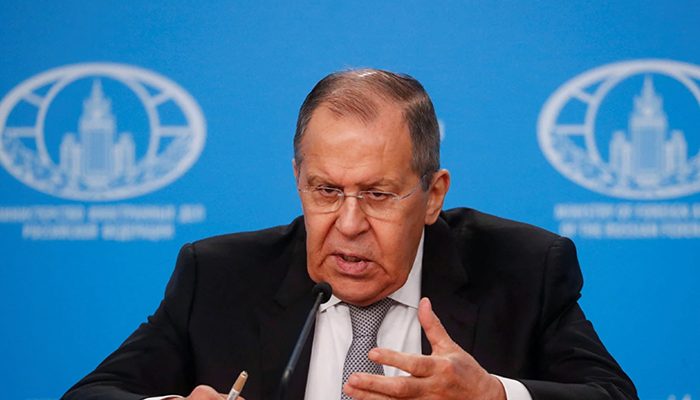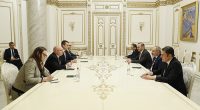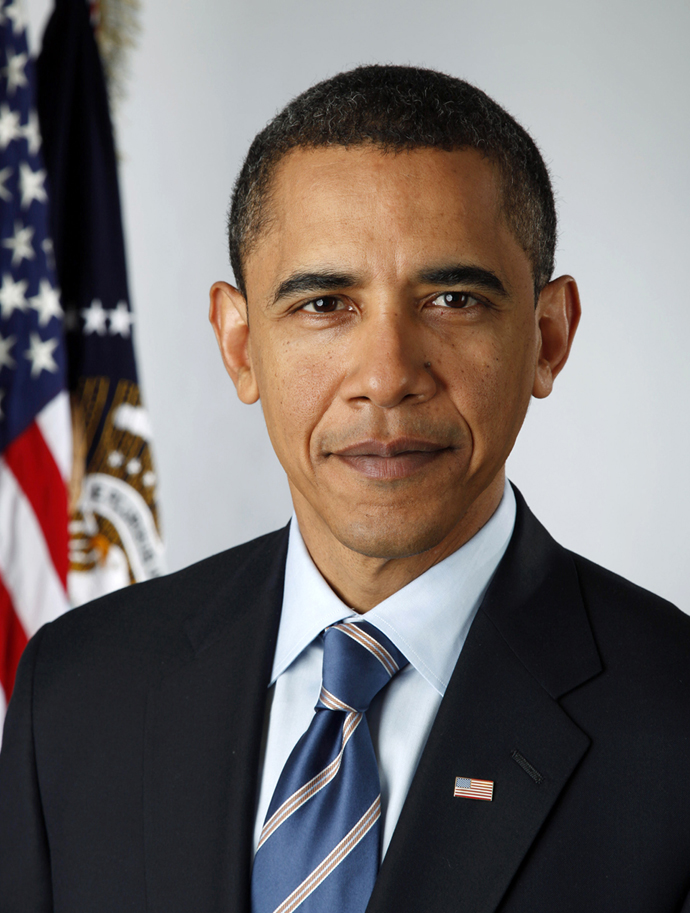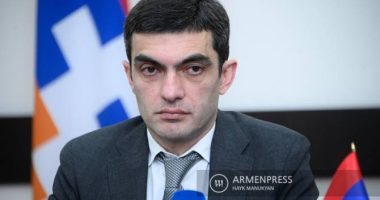MOSCOW — Russia’s Foreign Minister Sergei Lavrov on Thursday accused Western powers of obstructing Russian efforts to end the conflict between Armenia and Azerbaijan and trying to hijack Armenian-Azerbaijani agreements brokered by Moscow.
Lavrov also questioned the effectiveness of separate peace efforts made by the United States and the European Union.
“It’s hard for me to imagine how they can discuss the issue of [Armenian-Azerbaijani border] delimitation and the peace treaty without a [precise] map of the former Soviet republics which is kept in the Russian [general] staff,” he told a news conference in Moscow.
In earlier rounds of negotiations, he claimed, Russia put forward a proposal to postpone negotiations on Karabakh’s status for the foreseeable future, but then Pashinyan and Aliyev “came to Sochi from Prague with a document in which they said they want to sign a peace treaty based on the UN Charter and the Alma-Ata Declaration.”
Lavrov reiterated that the U.S. and France stopped cooperating with Russia within the framework of the OSCE Minsk Group, which was for decades co-headed by the three world powers, following the Russian invasion of Ukraine. They thus “buried” that mediation format, he charged.
U.S. Assistant Secretary of State Karen Donfried denied this when she visited Yerevan in June. Later in the summer, another senior State Department official, Philip Reeker, was appointed as the new U.S. co-chair of the Minsk Group.
Lavrov claimed that, PM Pashinyan effectively recognized Azerbaijani sovereignty over Nagorno-Karabakh in a joint statement with Azerbaijani President Ilham Aliyev, French President Emmanuel Macron and EU chief Charles Michel issued after their October 6 meeting in Prague.
“Armenia and Azerbaijan confirmed their commitment to the Charter of the United Nations and the Alma Ata 1991 Declaration [by former Soviet republics] through which both recognize each other’s territorial integrity and sovereignty,” read that statement.
The Alma-Ata Declaration formalized the dissolution of the Soviet Union and said new international borders would be based on communist-era administrative boundaries between Soviet republics.
Later in October, Russian President Vladimir Putin signaled support for a different peace deal that would indefinitely delay an agreement on Karabakh’s status. Pashinian repeatedly stated afterwards that he backs this formula and hopes Moscow will get Baku to accept it.
Lavrov complained on Thursday that the Prague statement made this task much harder for the Russians. Aliyev was ready to consider the Russian version of the peace treaty before the summit held in the Czech capital, he said.
“When the Armenian side is telling Russia, after signing that document [in Prague,] to stand by its proposals on Karabakh’s status … that is not about holding negotiations,” added the top Russian diplomat.











1 comment
MR Lavrov 2years later Azeris on Armenian soil